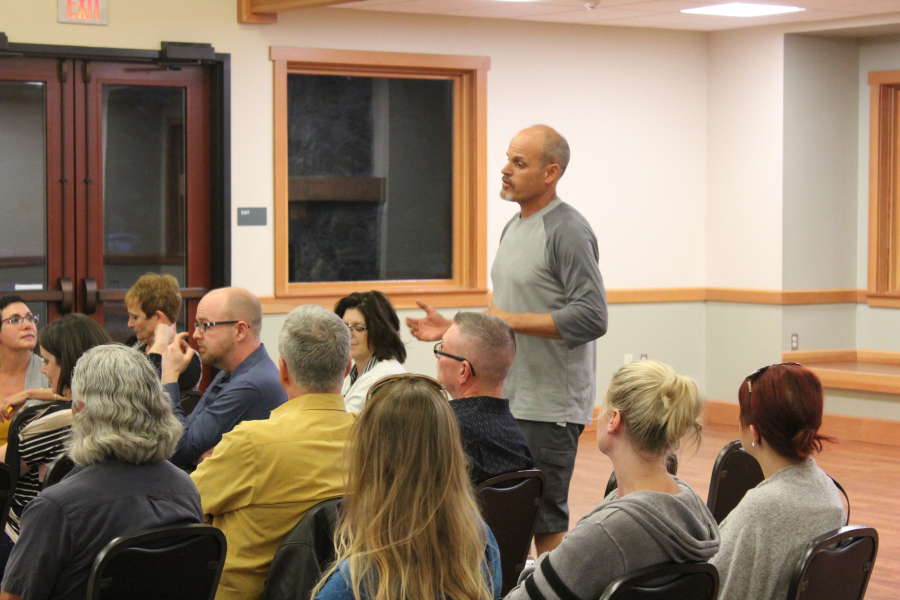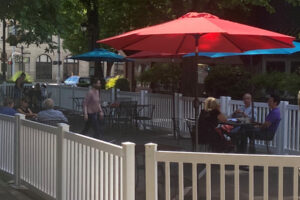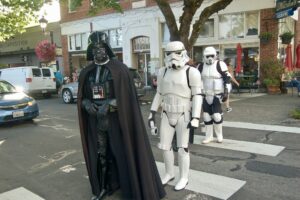In Camas, it was a basketball, not a straw, that broke the camel’s back — rather, it was a lot of basketballs.
The 3-on-3 basketball tournament known as “Hoops 360” took over Camas’ historic downtown for an entire weekend in mid-August. Music was played, baskets were swished and, most importantly, streets and parking spaces were closed off.
Participants and visitors may have had a great time at the inaugural event, but many downtown Camas business owners were eager to hear the final buzzer.
“There was definitely some lessons learned on that one,” said Pete Capell, Camas city administrator, about the Hoops 360 road closures, which shut down the majority of streets in historic, downtown Camas.
Discussing how many events are held in downtown Camas — and the unintended consequences of those events’ associated road closures — was the driving force behind a recent standing-room-only meeting at Lacamas Lake Lodge, where business owners, city officials, members of the Downtown Camas Association (DCA) and interested citizens packed into extra chairs to discuss the balance between building community and keeping commerce flowing.




